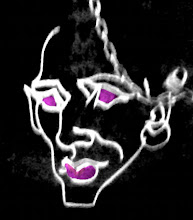Prelude to Zombie Apocalypse

Three years ago, I was at the height of my academic years. I had already completed the well-rounded primer that is a BS in geology, and was readying myself for the pursuit of a masters degree in a field which few know what’s actually studied. Bidding my time, I decided to take easy classes that seemed stimulating. Back to the studio with J** who still looked like Jamie Hyneman from the show Mythbusters; drawing glass is still hard as fuck. There was also the time spent with K***** meditating on Nazi propaganda and Mel Gibson films. From these discussions, it was suggested I read some philosophical essays and excerpts of dissertations that questioned the meaning of symbols and images in our present times. After admitting that I thought Susan Sontag was basically envious of Leni Riefenstahl’s craft, K***** suggested that I read Baudrillard’s “Simulacra and Simulation” in order to understand the “hyperreality” of our present age. It was after a short trip to the copy room that I received a Xeroxed copy of Baudrillard’s treatise on the symbols throughout society.
I remember being rendered numb after I’d finished Baudrillard’s philosophical discourse. I understood how this postmodern theory applied to my own ideas of stylized cinematography, yet the impact hit deeper. Practically overnight I became fascinated with all philosophical theories. Prior, themost interesting ideas I’d read were those of Turing. Baudrillard took the Turing Machine and abstracted it down to something that appeared to lack any traditional meaning. I began asking myself questions to which there were no answers. “Isthe profession I choose reality or fantasy? How much can something be corrected before it is perfect? IfI were to play a song on the radio, how many alien receptors would pick it up, dig it and then re-broadcast it over their airwaves? Do I have a genuine personality?” I realized that thetheory of simulacra could be supported through past conversations with friendsand family; thinking back to previous discussions.
Three months prior:
“I swear, I’ve never met anyone quite like A****.
“Oh really? Well, to tell you the truth, I’ve met someone just like him not so long ago. I used to think that I’d never meet the same type of person as such and such, but that’s not true. You’re bound to meet someone who fills the place of a former friend.
Two years prior:
“What do you think Norman Mailer thinks of the Village Voice now? I bet he’s against the things they publish.”
“I don’t know about that, but I’m certain he’s happy that there’s always another overweight shut-in filling the gap of counterculture commentary to be found on the Internet. Maybe the Voice will devolve to something like the comments section of amazon.com.”
One week prior:
“Why do hipsters constantly want to reprise things from the Reagan era? It’s as if Reagan’s ghost haunts the minds of kids with a horrible fashion sense.”
Later that night:
“I swear you can turn the Chase logo into a swastika.”
This all really means nothing if you, the reader, don’t know of Baudrillard or what simulacra are. And if you disagree with him, then this is all false. Then again, if there’s a reference to his discourse in The Matrix, maybe you’ll be convinced with kick-ass fighting scenes picked fresh from Hong Kong.
Labels: Baudrillard, retrovert, simulations, zombie skies


0 Comments:
Post a Comment
<< Home